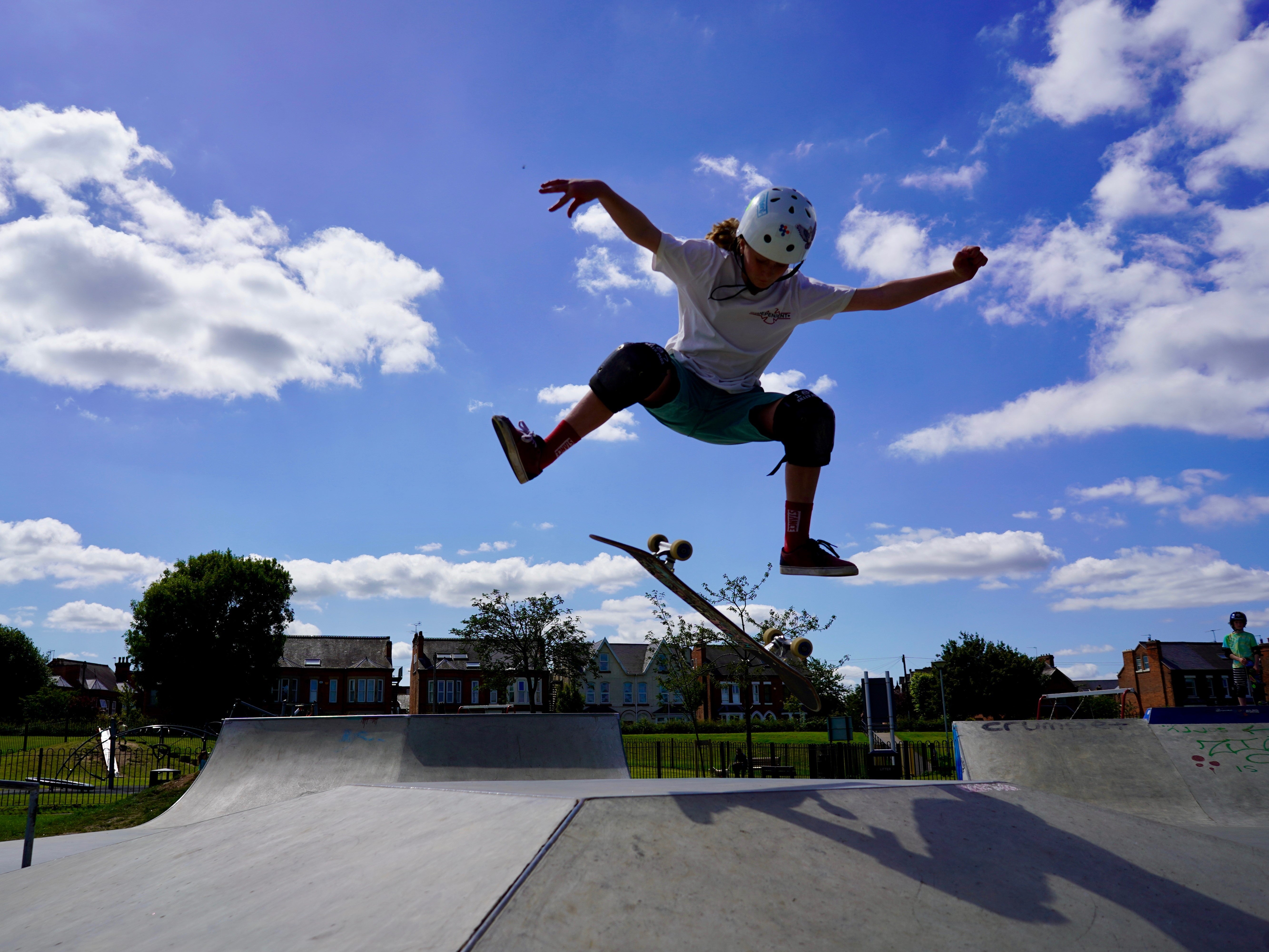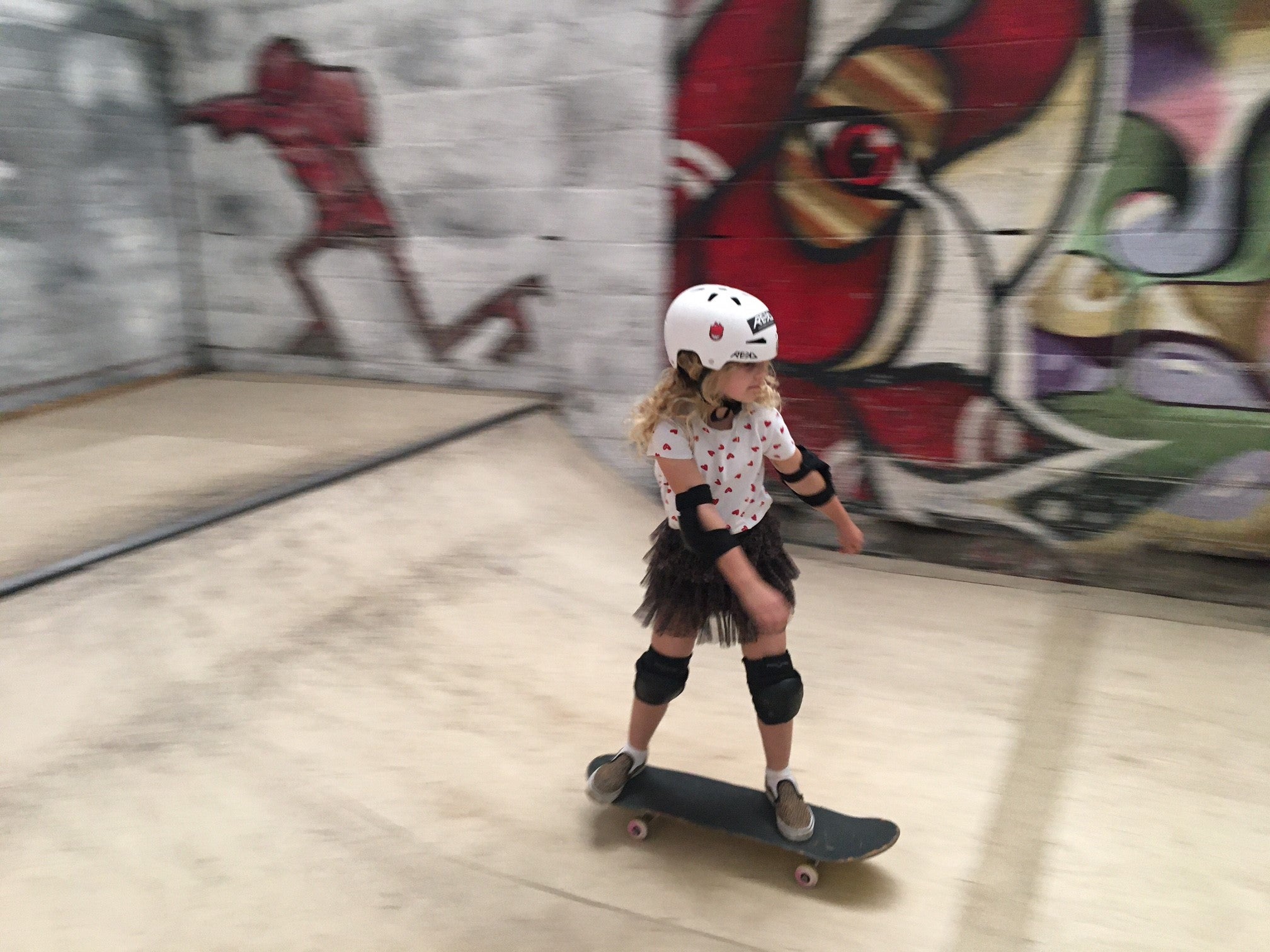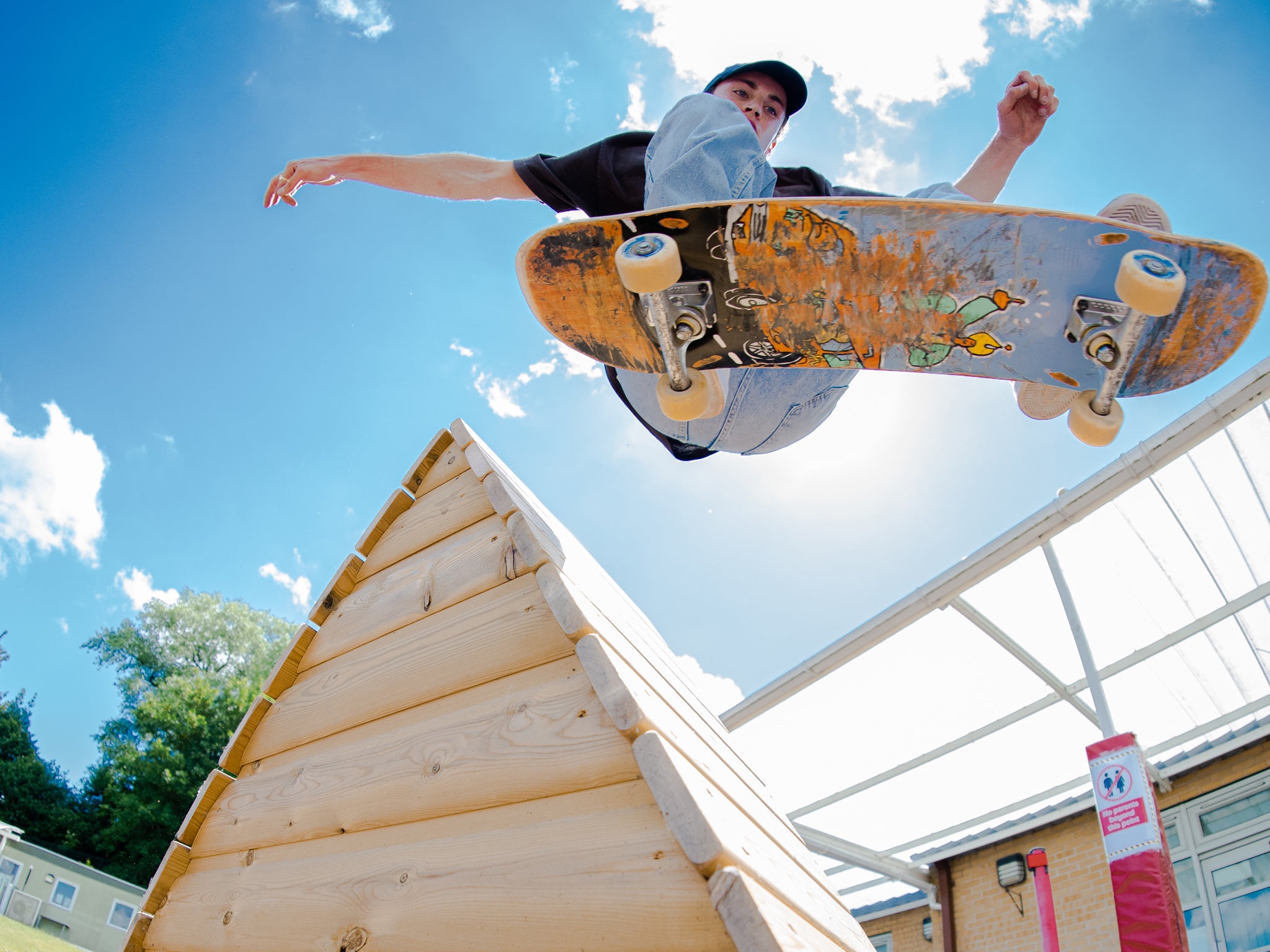Corona-rollers: How Covid-19 (and teenage girls) sparked a British skateboarding boom
Even before Sky Brown’s Olympic success, parks were seeing record numbers of participants - with females fronting the charge. Colin Drury speaks to some of those who’ve recently come on board


Your support helps us to tell the story
From reproductive rights to climate change to Big Tech, The Independent is on the ground when the story is developing. Whether it's investigating the financials of Elon Musk's pro-Trump PAC or producing our latest documentary, 'The A Word', which shines a light on the American women fighting for reproductive rights, we know how important it is to parse out the facts from the messaging.
At such a critical moment in US history, we need reporters on the ground. Your donation allows us to keep sending journalists to speak to both sides of the story.
The Independent is trusted by Americans across the entire political spectrum. And unlike many other quality news outlets, we choose not to lock Americans out of our reporting and analysis with paywalls. We believe quality journalism should be available to everyone, paid for by those who can afford it.
Your support makes all the difference.At The House Skatepark in Sheffield, seven-year-old Mia Nichols has spent the afternoon attempting to perfect her latest skateboarding trick, the rock to fakie.
Rolling alongside her on the quarter pipe is father Tommy. “She can’t get enough of it,” he says. “I had to carry her home a few weeks back after she fell and hurt her ankle. A few hours later she goes, ‘Dad, can we go back now?’”
Skateboard-mania – falls and all – is sweeping the country following Sky Brown’s astonishing Olympic success this week.
The sport’s popularity looks set to explode after the 13-year-old became Great Britain’s youngest ever medallist by clinching bronze in the “park” event on Wednesday.
Except this boom will, it seems, only build on a trend already in full flow. Somewhat under the radar, skateboarding numbers in the UK have been growing steeply for almost 18 months now due to a rather different reason. Namely, coronavirus.
Data suggests that more people than ever before are enjoying the pastime – once described by the American pro Stevie Williams as the “poetry of motion” – after taking it up during the UK’s first lockdown last spring.
Specialist shops have reported a 31 per cent year-on-year rise in the sale of new boards, while users searching for their nearest facility on the MySkate app have more than doubled in the same period. Skateboard GB – the sport’s governing body here – estimates 750,000 took to a board last year at one of the country’s 1,720 parks. Of those, it reckons up to 90,000 were first-timers.
Pertinently, the body believes some 15 per cent of all participants are now female – a number that, while clearly still in need of improvement, is significantly up from a corresponding Nineties figure that was close to zero. Many of the incomers are teenagers or, like Mia, even younger.
The main thing is she loves it but it also teaches so many good habits. Practice, dedication, the importance of hard work. As a parent, that’s ideal, I think
“As an activity, it just ticked so many boxes for people in that first lockdown,” says Neil Ellis, engagement manager with Skateboard GB and himself a veteran of 22 years. “It’s a great workout, good for mental health and completely accessible wherever you live. You need a skateboard and a hard surface, and that’s it – you’re good to go. And … it’s a wonderfully social sport. There is a community and lifestyle around skateboarding but, absolutely, it’s something you can do on your own and still have fun.”
This is more or less what led Mia and Tommy here to House Skatepark – a sprawling indoor facility where half pipes, flat banks and driveways occupy what was once an old steel building.

The pair, from Brighouse, had started occasionally skateboarding together a few months before Covid-19 hit these shores. He used to do it as a teenager and figured it might be an enjoyable way for them to spend quality time together. But once schools, clubs, and parks closed last March – and with socialising effectively illegalised – it remained one of the few outdoor activities they were able to carry on doing.
“It’s an awesome hobby for her,” says the 32-year-old factory night-shift coordinator. “The main thing is she loves it but it also teaches so many good habits. Practice, dedication, the importance of hard work. As a parent, that’s ideal, I think.”
Is he not worried about those bumps, bangs and broken bones? A definitive shake of the head. “She knows her limits,” he says. “Besides, they bounce at this age, don’t they?”
To some extent, Mia is representative of the intriguing aspect of the new boom: she’s female.
Skateboarding has been dominated by boys since it first arrived in the UK from California in the late Fifties. During the Nineties – when it overlapped with both hip-hop and nu-metal culture – it came with especially misogynistic overtones, some veterans will tell you.
“Back then,” says one, “the overriding attitude towards inclusivity was that it didn’t matter where you came from or who you were because if you were a skater, you were a skater. Unless you were a girl. And then you were a girl.”

For Miriam Nelson – a 13-year-old schoolgirl, third at April’s GB National Championships – such explicit sexism feels like a part of history.
But when she herself started skating four years ago at Nottingham’s indoor Flo centre, she was one of only two girls in the beginners’ class. Today, more than 50 per cent of youngsters signing up for the novice sessions there are female.
“It’s just an amazing way to spend time,” says Miriam. “It’s so creative. You can always try something new and you make loads of new friends.”
She herself has Olympic aspirations for 2028. “But, mainly,” she says, “I just want to carry on having fun”.
Exactly why more females are taking up the sport is difficult to assertion but, as much as anything, leading figures say it’s probably a simple refusal of a new generation to be restricted by nonsensical gender divides.
Groups like Rollin’ With The Girls in Leeds have nurtured the rise, while breakout stars – such as Brown or 14-year-old Bombette Martin – have used social media to encourage others to take part.
Places like The House Skatepark have helped, too. For several years now, girl-only sessions have been held here in a bid to get more beginners to come. “That kind of soft exclusion of the Nineties, it was completely the antithesis of what skating should be about,” says owner Rob Bannister.
For the 46-year-old, this is perhaps the most exciting period for the sport since he first founded The House with a Prince’s Trust youth business grant back in 1998. The challenge now, he says, is to “capitalise” on the sheer number of new participants, both male and female.
It is something, indeed, that Neil Ellis – of Skateboard GB – agrees with entirely.
“The aim now is to make the most of what is happening,” he says. “If we can sustain this growth, keep improving and expanding facilities, keep creating those opportunities, then someone like Sky Brown, as incredible as she is, there’s no reason she can’t simply be the first of many.”

Join our commenting forum
Join thought-provoking conversations, follow other Independent readers and see their replies
0Comments